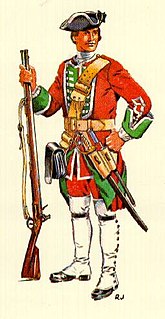
Shelby Dade Foote Jr. was an American historian and novelist who wrote The Civil War: A Narrative, a three-volume history of the American Civil War. With geographic and cultural roots in the Mississippi Delta, Foote's life and writing paralleled the radical shift from the agrarian planter system of the Old South to the Civil Rights era of the New South. Foote was little known to the general public until his appearance in Ken Burns's PBS documentary The Civil War in 1990, where he introduced a generation of Americans to a war that he believed was "central to all our lives."
Foote did all his writing by hand with a nib pen, later transcribing the result into a typewritten copy.

King's Chapel is an independent Christian unitarian congregation affiliated with the Unitarian Universalist Association that is "unitarian Christian in theology, Anglican in worship, and congregational in governance." It is housed in what was formerly called "Stone Chapel", an 18th-century structure at the corner of Tremont Street and School Street in Boston, Massachusetts. The chapel building, completed in 1754, is one of the finest designs of the noted colonial architect Peter Harrison, and was designated a National Historic Landmark in 1960 for its architectural significance.

Andrew Hull Foote was an American naval officer who was noted for his service in the American Civil War and also for his contributions to several naval reforms in the years prior to the war. When the war came, he was appointed to command of the Western Gunboat Flotilla, predecessor of the Mississippi River Squadron. In that position, he led the gunboats in the Battle of Fort Henry. For his services with the Western Gunboat Flotilla, Foote was among the first naval officers to be promoted to the then-new rank of rear admiral.

General Charles Stanhope, 3rd Earl of Harrington, styled Viscount Petersham until 1779, was a British Army officer and politician who sat in the House of Commons between 1774 and 1779 when he succeeded to the peerage as Earl of Harrington.
Albert Horton Foote Jr. was an American playwright and screenwriter, perhaps best known for his screenplays for the 1962 film To Kill a Mockingbird and the 1983 film Tender Mercies, and his notable live television dramas during the Golden Age of Television. He received the Pulitzer Prize for Drama in 1995 for his play The Young Man From Atlanta and two Academy Awards, one for an original screenplay, Tender Mercies, and one for adapted screenplay, To Kill a Mockingbird. In 1995, Foote was the inaugural recipient of the Austin Film Festival's Distinguished Screenwriter Award. In describing his three-play work, The Orphans' Home Cycle, the drama critic for the Wall Street Journal said this: "Foote, who died last March, left behind a masterpiece, one that will rank high among the signal achievements of American theater in the 20th century." In 2000, he was awarded the National Medal of Arts.
Foote is an English surname. Notable people with the surname include:

George William Foote was an English secularist and journal editor.
John Foot or John Foote may refer to

The Mississippi River Squadron was the Union brown-water naval squadron that operated on the western rivers during the American Civil War. It was initially created as a part of the Union Army, although it was commanded by naval officers, and was then known as the Western Gunboat Flotilla and sometimes as the Mississippi Flotilla. It received its final designation when it was transferred to the Union Navy at the beginning of October 1862.

Barry Clifton Foote is an American former professional baseball player, scout, coach and minor league manager. Foote played in Major League Baseball as a catcher for the Montreal Expos (1973–1977), Philadelphia Phillies (1977–1978), Chicago Cubs (1979–1981), and New York Yankees (1981–1982). He played most of his baseball career as a back-up catcher.

Fort Foote was an American Civil War-era wood and earthwork fort that composed a portion of the wartime defenses of Washington, D.C., by helping defend the Potomac River approach to the city. It operated from 1863 to 1878, when the post was abandoned, and was used only briefly during the First and Second World Wars. Today, the fort is operated as Fort Foote Park, which is maintained by the U.S. National Park Service as part of the National Capital Parks-East system. The area's mailing address is Fort Washington, MD.

Woodville is a community in Kings County of about 200 people located in the Annapolis Valley of Nova Scotia. The community is situated north of Cambridge and Waterville at the foot of the North Mountain. Centred along Route 221, Woodville has a volunteer fire department, a Baptist church, two auto body shops, a home run automotive mechanic business, and many family-run farms. It is administratively part of the village of Cornwallis Square. A community centre is located in the former school, built in 1942. The former Wesley Knox United Church, built in 1921, was sold in 2006 is now a residence and artist's workshop.
Henry Ebenezer Davies was an American lawyer and politician from New York. He was Chief Judge of the New York Court of Appeals from 1866 to 1867.
Thomas Moses Foote was an American diplomat and newspaper editor.
Elizabeth Erny Foote is an American lawyer serving as a United States District Judge of the United States District Court for the Western District of Louisiana.

Oglethorpe's Regiment of Foot was an infantry regiment of the British Army formed for service in North America during the War of Jenkins' Ear. It was commanded by James Oglethorpe, first Governor of Georgia.

The Len Foote Hike Inn is a sustainably designed and LEED-certified ecotourism facility located near the peak of Frosty Mountain in the Chattahoochee National Forest in Dawson County, Georgia, USA. The lodge is open year-round and is only accessible via hiking trails. Twenty rooms, a two-story central lobby, a dining room, a bathhouse, toilets, and a common room comprise the facility.

The Leather Bottle is a pub at 538 Garratt Lane, Earlsfield, London SW17.













